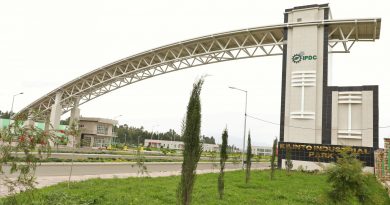PM: Economy on the Right Track amid Debt Servicing Burden
ADDIS ABABA – The Ethiopian economy’s gradual recovery from multiple shocks is right on track, Prime Minister Abiy Ahmed states, as he defends his administration’s economic performance in the concluding fiscal.
The PM on Wednesday responded to parliamentarians’ questions on economic issues ranging from inflation to national debt.
Drought, internal conflict, and the spillover impacts of the pandemic and the war in Ukraine have all hit the economy which led to increasing inflation and fiscal and external pressures on the country.
Authorities countered these challenges with several economic reforms aimed at shifting to private sector-led growth, addressing macroeconomic imbalances, and increasing productivity.
These steps are starting to result in positive outcomes, notes the PM, stating that his administration is not only reigning in inflation and servicing the national debt but also increasing the outputs of key sectors.
Inflation is high but decelerating
The cost of living has been increasing for the past 20 years but its rate accelerated over the past few years.
Abiy says that his administration “has managed to reduce the overall inflation to 30%” after it rose to 37% earlier this year.
“We will work to further decrease it,” he told the MPs,
However, the PM has stated that current inflation “is not unique to Ethiopia” and has been affecting all economies though the level of its impact differs.
When the issue becomes global, he says the response often has a rippling effect, stating the negative impact the US’s consecutive interest-rate hikes caused on Ethiopia.
Experts say the US Federal Reserve’s massive interest-rate hikes since March 2022 have dealt a double whammy to African countries whose loans are mostly denominated in dollars. Their debt-service costs have gone up and their currencies’ dollar exchange rate has gone down.
Ethiopia is one of the countries grappling with the rising cost of debt-servicing while its banknote, Birr, saw an 80% drop in value.
Debt servicing taking away forex
It is also rated CCC by S&P Global Ratings, which means it’s “ vulnerable” to non-payment of debt, but still meeting its debt obligations amid ongoing talks with creditors to restructure its total debt, which hovers around $26 billion.
The PM has allayed any fear of default saying the country is not only meeting its debt obligations on time but also reducing the debt stocks.
“At the time of the transition, Ethiopia’s debt stood at 59%, but now it has been significantly reduced to 38%,” he told the MPs.
“Despite the challenges encountered, we have been treating debt we inherited,” he said, “We will further work to reduce it to below 30% in the next 3 years.”
The country has spent more than two billion on debt service payments in the concluding fiscal year.
Spending on Import dropped by 3%
These payments on the year Ethiopia’s export trade underperformed, showing an 11% drop as compared to last year.
But improving service, remittances and foreign direct investment (FDI) has helped to fill the gap in forex earnings, according to the PM.
“We have seen a 14% increase in service exports; a 4.8% increase in remittance and a 10.5% increase in FDI earnings,” he said.
Conversely, the country has carved out foreign exchange worth $15 billion Dollars in spending, including four billion US dollars on fuel, and one billion dollars on fertilizer imports.
The figure shows a decline to 9.8% from 13% last year – this is partly due to increased domestic productivity in wheat as well as coal and clothes.
“Just like wheat, rice is another cereal crop that we will make remarkable progress in the sector,” he said. “Poultry farming at the household level and fruit farming are showing considerable growth. Hence why we expect the agriculture sector to grow by 6.3%.”
Meanwhile, the Industry sector has also seen a significant increase in its productivity, the PM says with its annual growth projected to hit 8.2 %.
The PM has attributed the growth to the government-driven ‘Let Ethiopia produce” movement which he said, helped more than 160 non-active factories to go operational in the year.
The service sector, which accounts for 39% of the GDP, has also seen a major improvement, driven by the performance of tourism, finance, and others, especially Ethiopian Airlines. Authorities expect the service sector to grow by 7.2 percent.
Economic growth is back on track
These achievements, the PM contends, show the economy remains resilient with a steady outlook for the medium term.
This, the PM says, performance “has to be reviewed within the context of the global economy” that “is currently suspended between hope and crisis” and the projection made by the International Monetary Fund (IMF).
The IMF’s World economic outlook report says growth will bottom out at 2.8% this year before rising modestly to 3% in 2024.
The same report projects the Ethiopian economy to expand by 6.1% in 2023 and 6.5% the following year, Abiy notes, although his administration expects a 7.5% growth.
Either way, these data show that the Ethiopian economy is now among the fastest-growing economies, according to the PM.









Pingback: The week of July 4 – July 11, 2023 – Cepheus Growth Capital